Diarrhea is no one’s favorite topic, and when this less-than-ideal bathroom experience strikes, you want to make it stop ASAP. Food may be the last thing on your mind when you're dealing with a queasy stomach, but knowing what to eat when you have diarrhea can help you bounce back faster.
Most often, diarrhea is loose, runny, and watery bowel movements caused by a virus or stomach bug that has entered your GI tract, says Christie Gagnon, RD, the founder of Hoorah to Health. Sometimes medications like antibiotics and a foodborne illness (from eating undercooked or spoiled food) can lead to this issue too.
Luckily, changing up your diet can help you feel better and improve your digestion. For example, the soluble fiber found in bananas, apples, oats, and barley dissolves into a gel-like substance and helps bulk up your stool, explains Gagnon.
On the flip side, you'll want to avoid dairy, high-fat, spicy, and sugar-free foods, which can contribute to spasms in your gut and make the situation worse, says Beth Warren, RDN, the founder of Beth Warren Nutrition and author of Living A Real Life With Real Food.
Nurturing your gut microbiome in general can help too. “Probiotics are live microorganisms that are added to foods such as yogurt and kefir, and consuming just one serving per day can help fill your gut with good bacteria and speed up recovery from diarrhea,” says Gagnon.
Best Foods to Eat when You Have Diarrhea
The following foods will help replenish nutrients lost while you're constantly running to the bathroom and soothe your digestive system.
1. Bananas
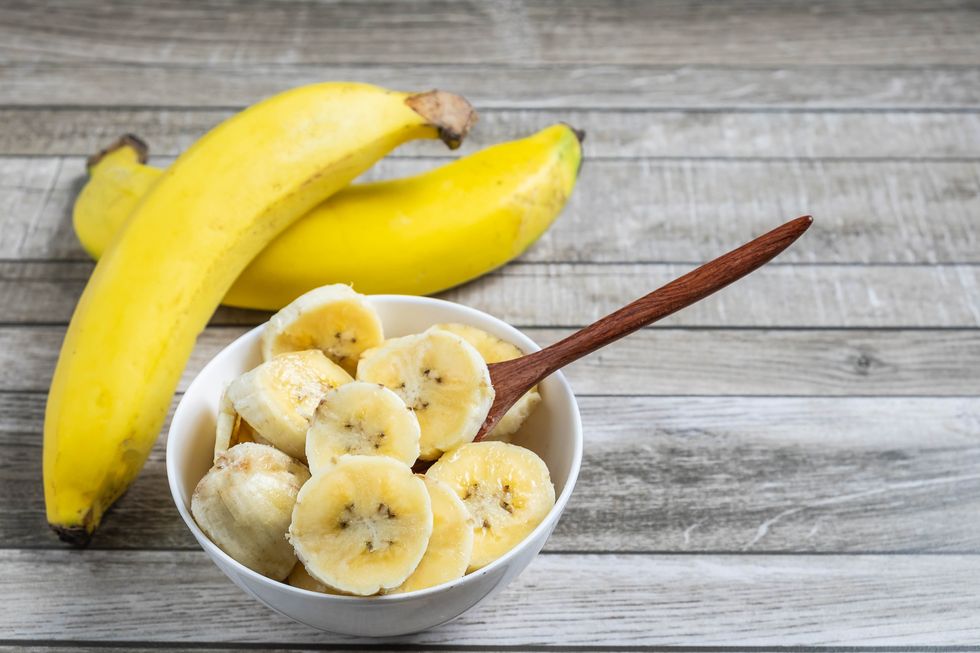 |
| CATERINA OLTEAN / 500PX//GETTY IMAGES |
Bananas contain easily digestible carbs, which are gentle on your gut. They’re also loaded with potassium, an electrolyte that’s often lost when you have diarrhea, Warren says. Not only that, bananas have pectin, which helps absorb liquid in your intestine and allows poop to move along more smoothly, she adds.
2. White Rice
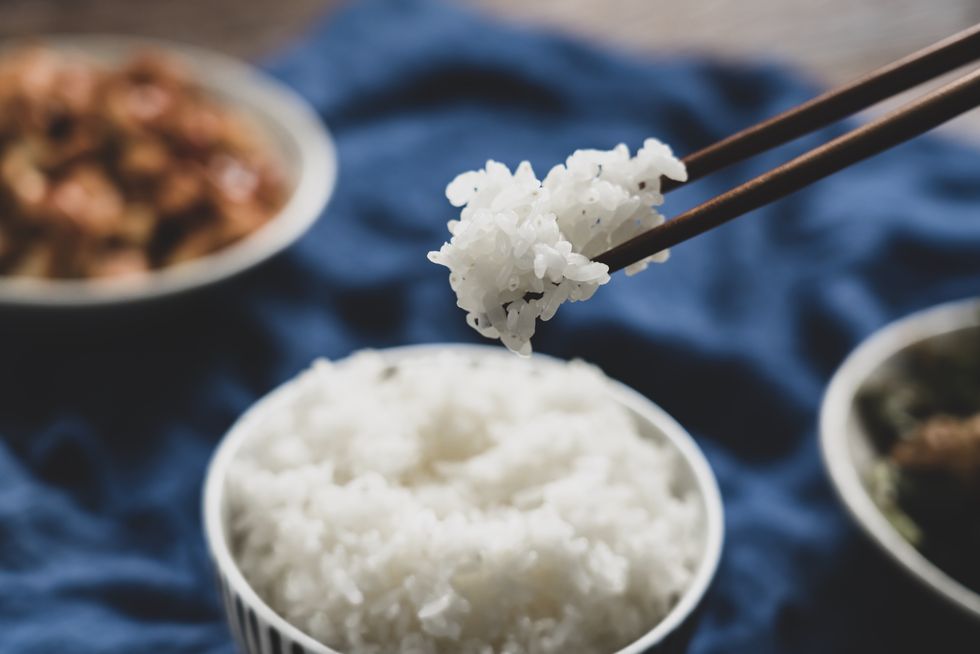 |
| GE JIAJUN//GETTY IMAGES |
Rice is binding, and that can help your poop become more firm before it exits the premises, Warren says.
3. Eggs
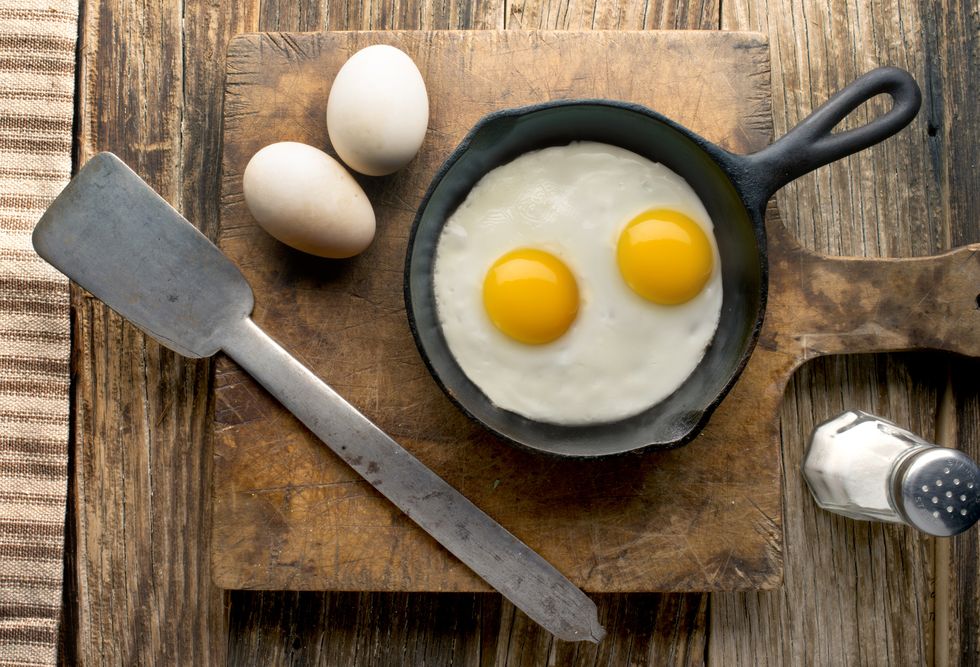 |
| ATU IMAGES//GETTY IMAGES |
It’s probably best to take a pass on a massive Western omelette, but having basic, well-cooked eggs without any butter or oil can help, the Mayo Clinic says.
4. White Bread
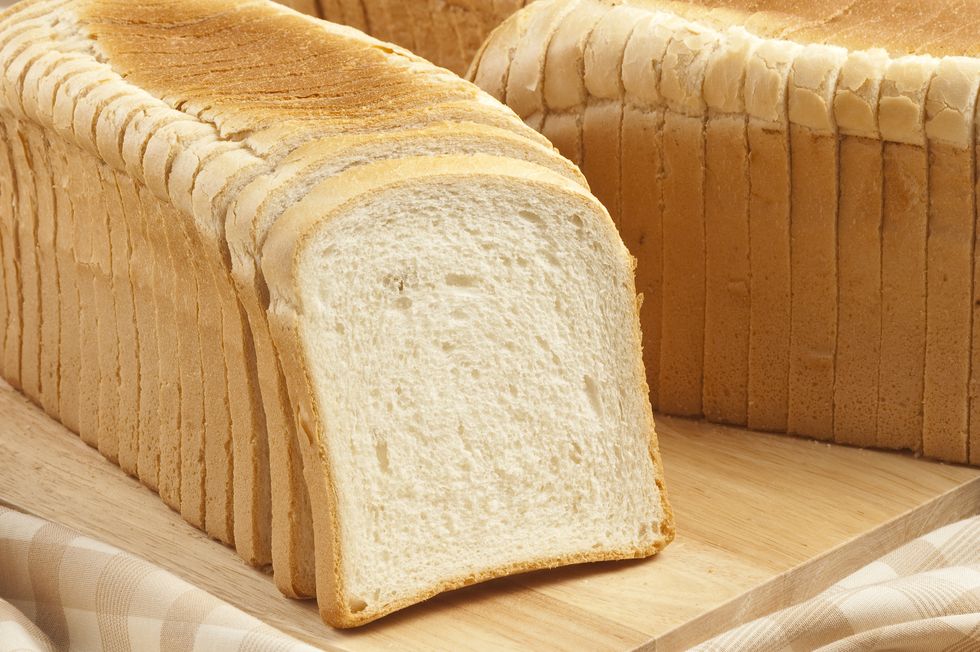 |
| SINAN KOCASLAN//GETTY IMAGES |
This has no fiber, which makes it easier for you to digest when you have diarrhea, Warren says.
5. Broth
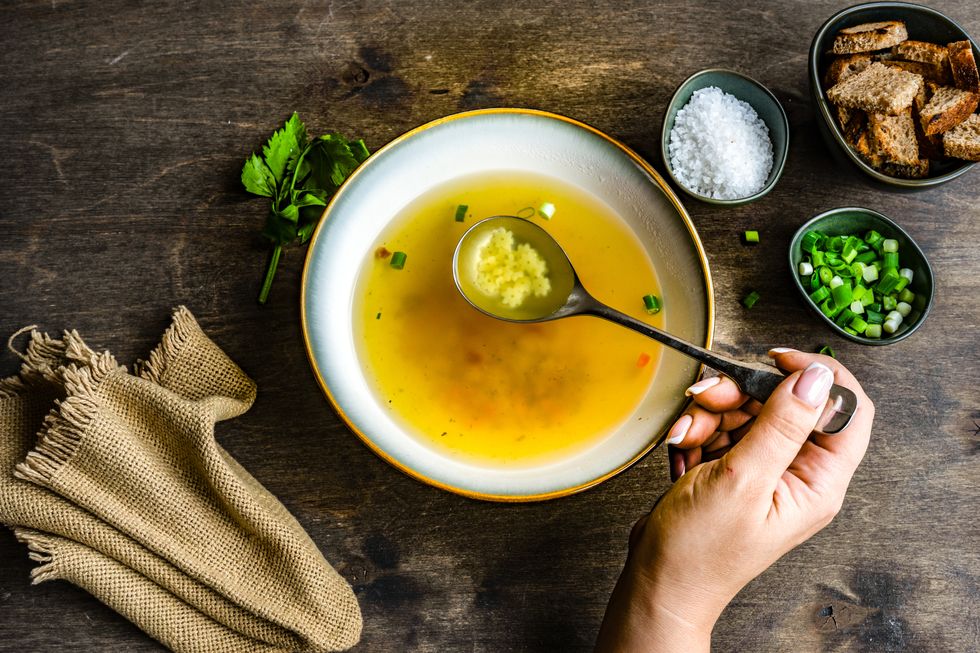 |
| ANNABOGUSH//GETTY IMAGES |
Diarrhea can quickly lead to dehydration, the Mayo Clinic points out, which is why it’s so important to replace fluids when you can. Sipping on broth will help you do that, and add in some extra nutrients that water can’t.
6. Mashed-Up Potatoes
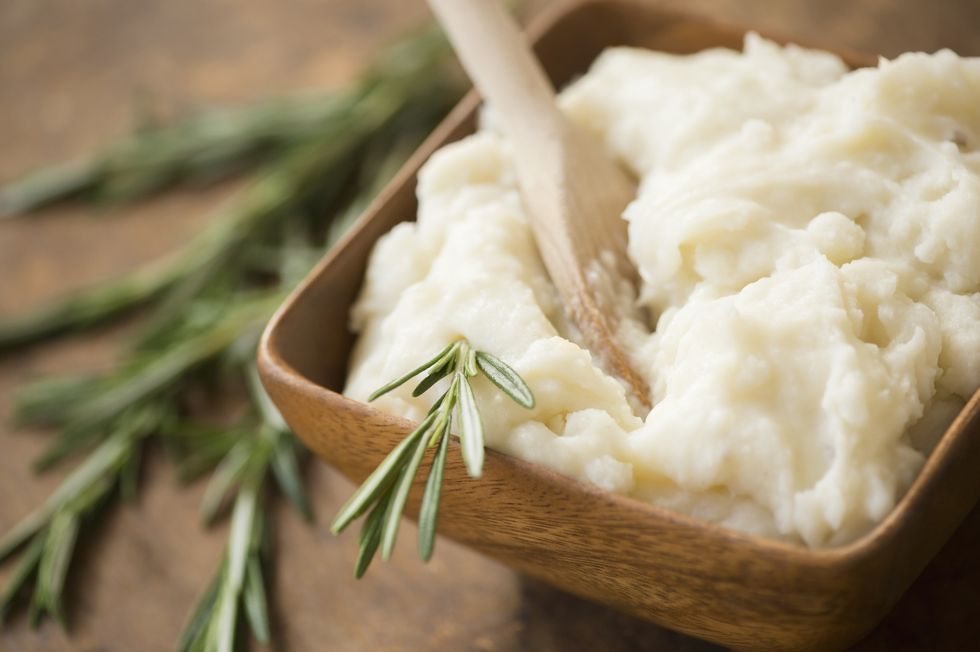 |
| JGI/JAMIE GRILL//GETTY IMAGES |
Butter and milk aren’t great for you when you’re battling diarrhea, but you can get the general feel of mashed potatoes by steaming a potato and smashing it up with a fork. Potatoes are high in the electrolyte potassium, Warren says, and they’re easily digested, making them a good choice.
7. Soda Crackers
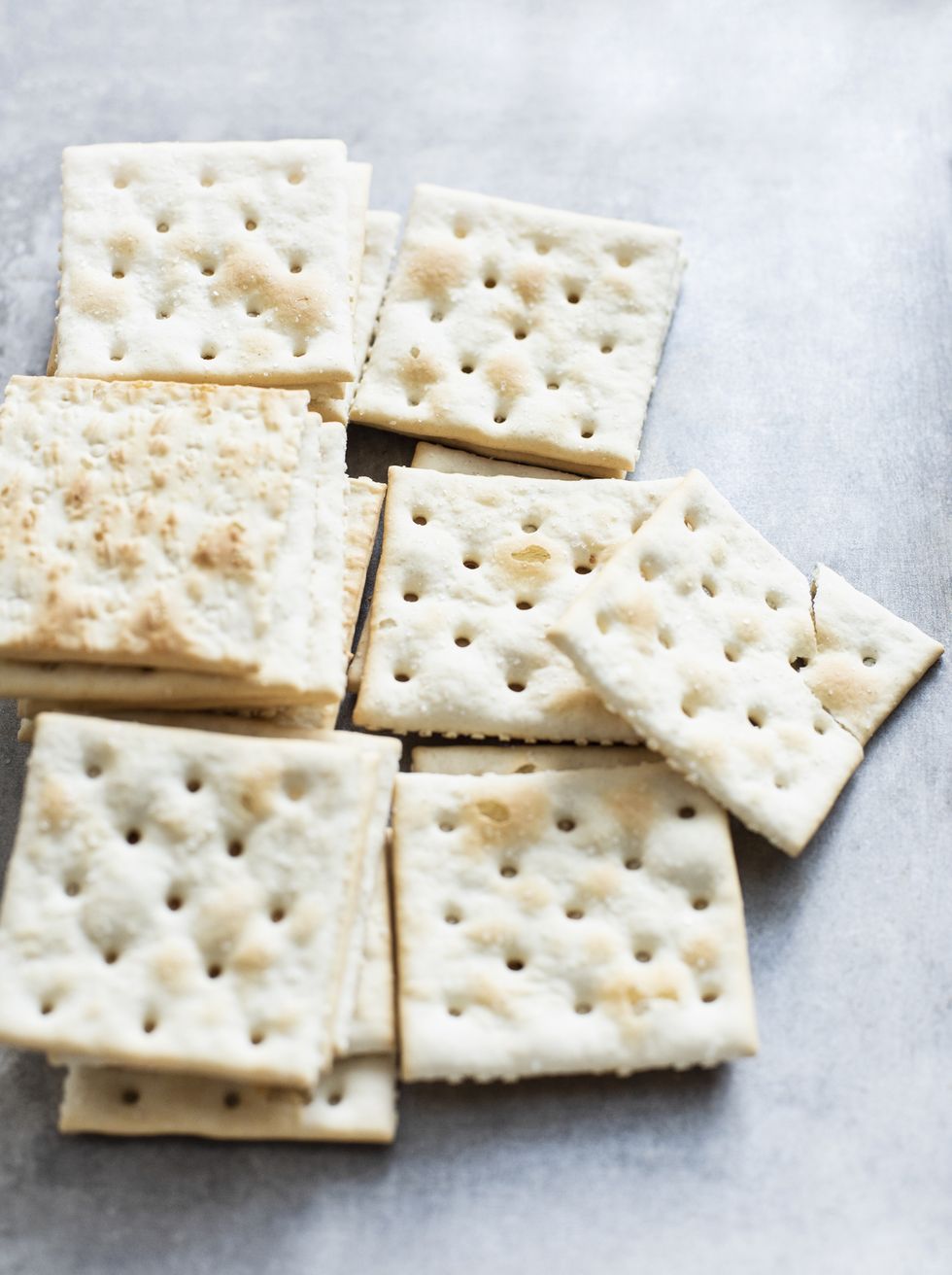 |
| MAGDALENA NIEMCZYK - ELANART//GETTY IMAGES |
Low-fiber foods are clutch when you’re struggling with diarrhea, which is why the Mayo Clinic recommends nibbling on these crackers.
8. Yogurt
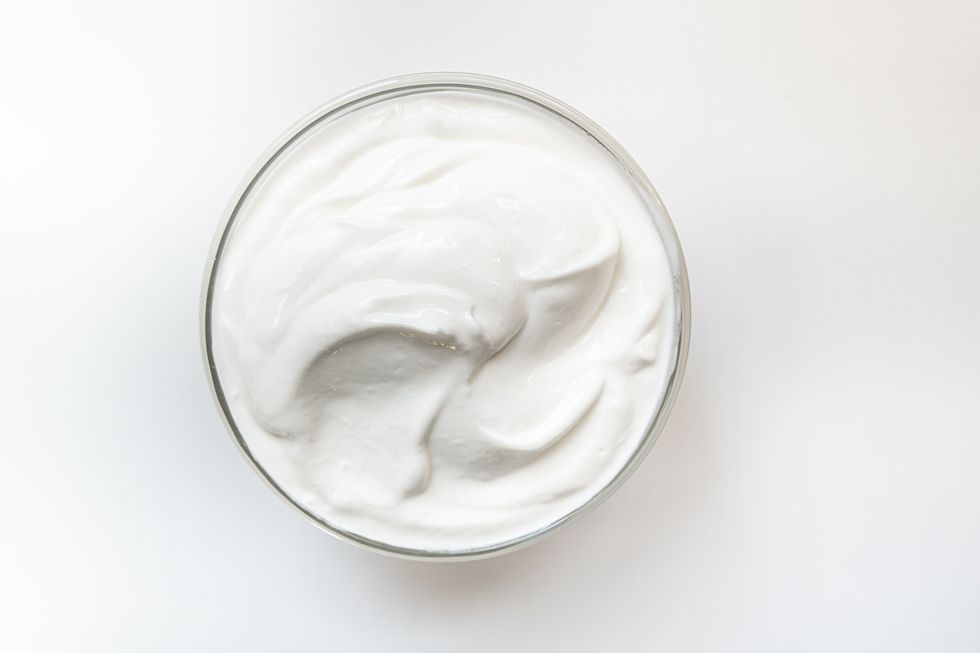 |
| WILATLAK VILLETTE//GETTY IMAGES |
Yogurt contains probiotics that help replenish your gut with healthy bacteria to alleviate diarrhea and get your intestines back on track, says Gagnon. Just be sure to choose one that’s low in sugar.
9. Barley
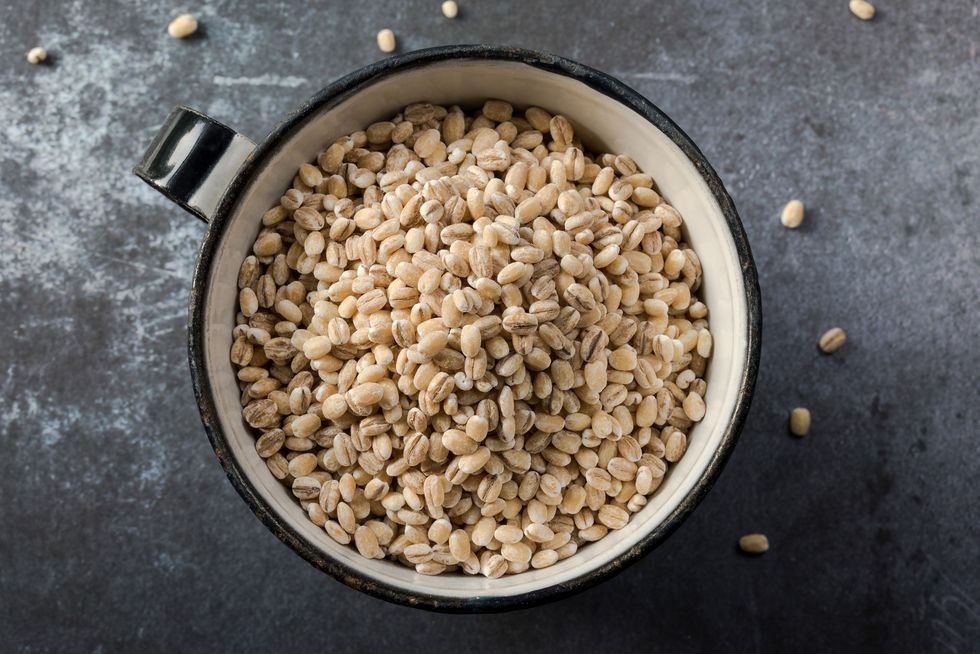 |
| MICHELLE ARNOLD / EYEEM//GETTY IMAGES |
Barley is high in soluble fiber, which may help bulk up your stool and ease diarrhea, says Gagnon. Serve it as a porridge with oat milk, diced apples, and cinnamon if you’re craving a sweet treat, she suggests.
10. Canned Peaches
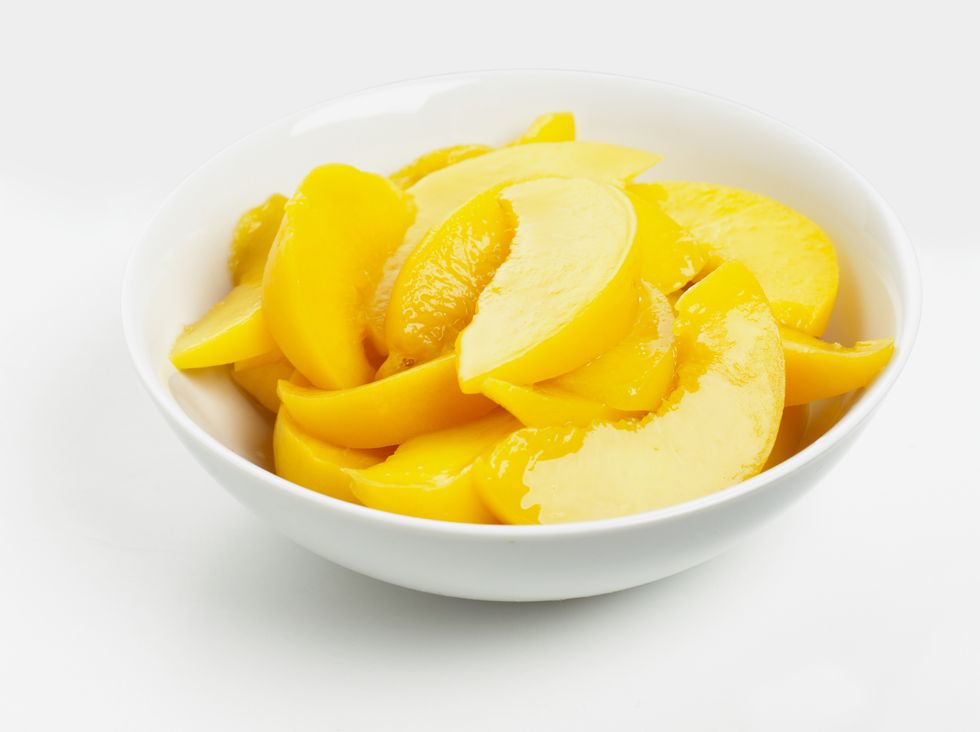 |
| DAVE KING//GETTY IMAGES |
Canned peaches are soft, low in fiber, and easy to digest, which makes it a great option if you're struggling with diarrhea, says Gagnon. It's better to choose products packed in water or 100 percent natural fruit juice, and avoid those with heavy syrup. But you can sprinkle on a little cinnamon for extra flavor, which has been shown to lower inflammation in the digestive tract, per Gagnon.
Worst Foods to Eat with Diarrhea
These foods can cause stomach upset and are best avoided while you're waiting for your bathroom habits to get back to normal.
1. Nuts And Seeds
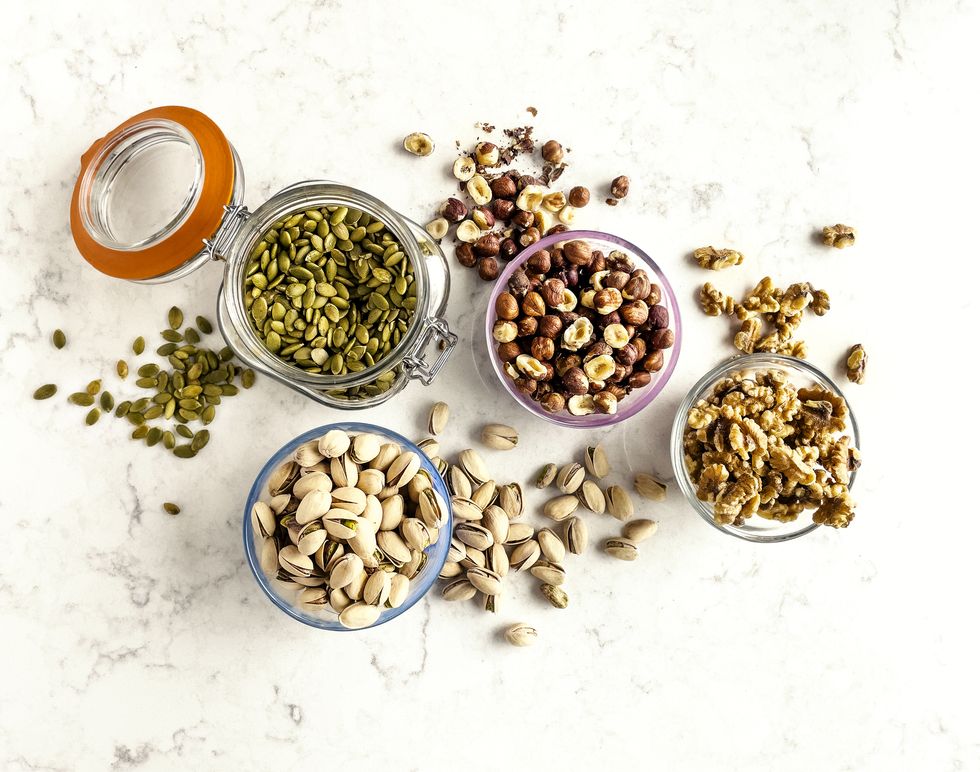 |
| CLAUDIA TOTIR//GETTY IMAGES |
Nuts and seeds (think: almonds, walnuts, flaxseeds, chia seeds, and hemp seeds) are high in insoluble fiber and magnesium, which relaxes the muscles in the intestines, says Gagnon. This causes nuts and seeds to pass quickly through the body and may exacerbate your symptoms, she explains.
2. Salad
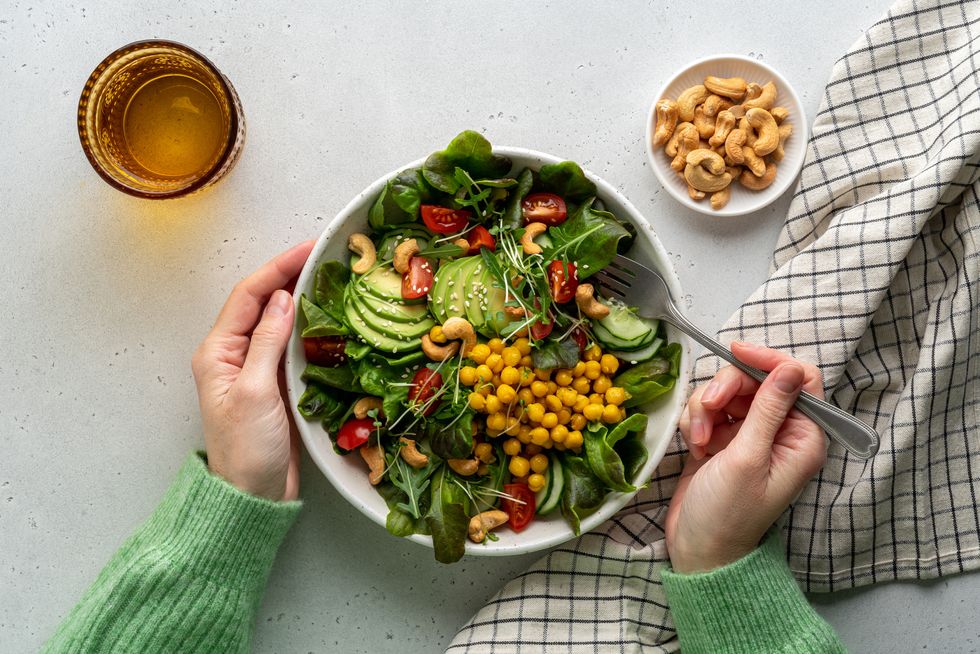 |
| NATALIA GDOVSKAIA//GETTY IMAGES |
Salad is a recipe for disaster when you're dealing with diarrhea because raw vegetables have a lot of insoluble fiber and may irritate the lining of the digestive tract, says Gagnon. Stick to soft, *cooked* vegetables instead, such as carrots, green beans, and spinach. Your stomach will thank you.
3. Coffee
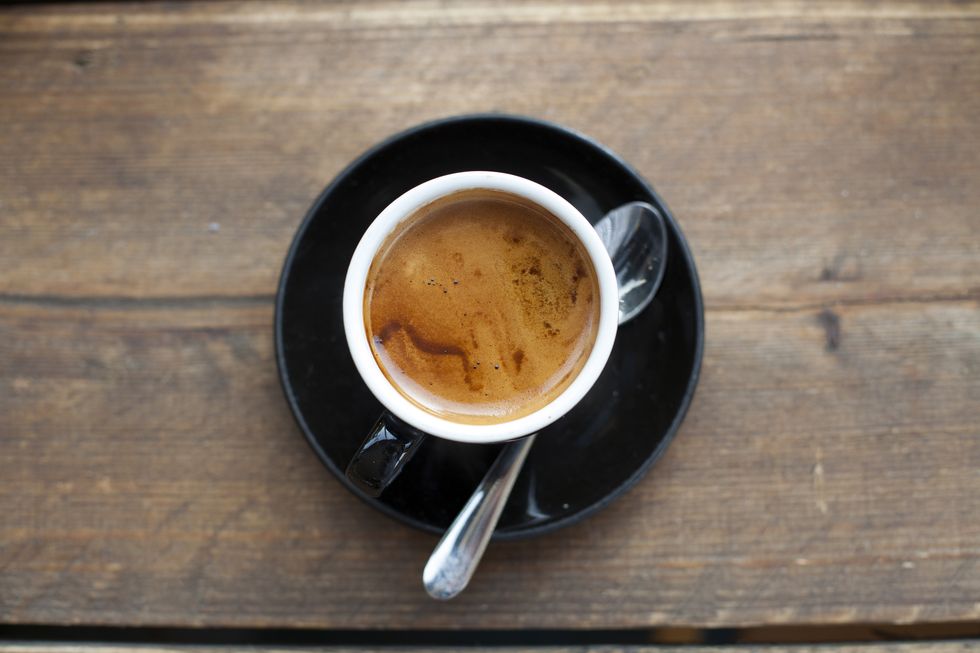 |
| JORN GEORG TOMTER//GETTY IMAGES |
Okay, technically this isn’t a food. But it's worth mentioning because coffee stimulates your digestive tract, says Gagnon. “Caffeine also acts as a diuretic and increases urine production, and this, combined with diarrhea, may increase your risk for dehydration,” she explains.
Trade your java for a cup of green, ginger, or peppermint tea at least for the time being, which will help soothe your stomach.
4. Legumes
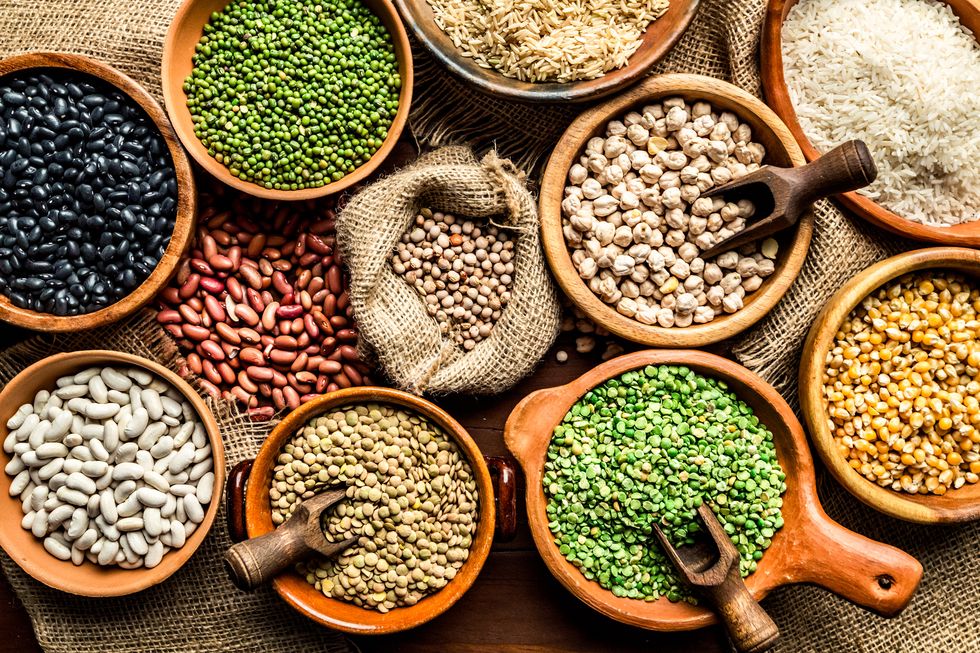 |
| HELEN CAMACARO//GETTY IMAGES |
Legumes such as beans, lentils, and chickpeas contain a whopping 15 grams of fiber per cup, which is really not ideal when you have diarrhea, says Gagnon. Plus, they contain raffinose, a type of carb that is poorly digested and can cause gassiness, she adds.
5. Sugar Substitutes
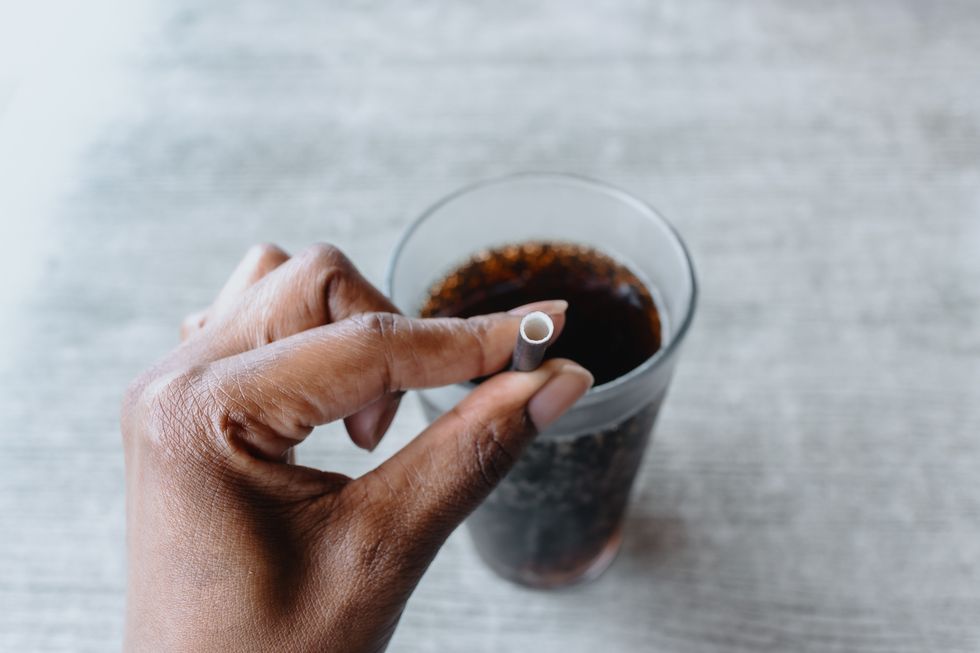 |
| GRACE CARY//GETTY IMAGES |
Sugar-free candy and foods often contain sugar substitutes such as aspartame, saccharin, and sucralose, or sugar alcohols like mannitol, sorbitol, and xylitol, which can have a laxative effect, Gagnon says.
6. Cruciferous Vegetables
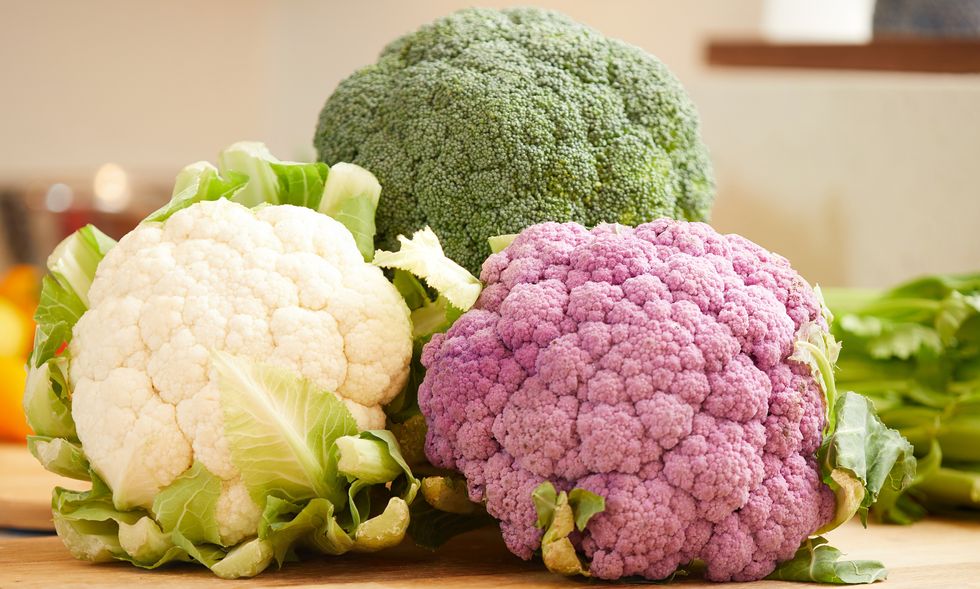 |
| THANASIS//GETTY IMAGES |
Cruciferous vegetables such as onions, peppers, garlic, broccoli, cauliflower, Brussels sprouts, and cabbage are a no-no when you have the runs because these types of veggies produce gas in your gut, says Gagnon. That means even more discomfort.
Important Notice: This article was also published at www.womenshealthmag.com by Korin Miller and Andi Breitowich where all credits are due.
Disclaimer
The watching, interacting, and participation of any kind with anything on this page does not constitute or initiate a doctor-patient relationship with Veripeudic.com. None of the statements here have been evaluated by the Food and Drug Administration (FDA). The products of Veripeudic.com are not intended to diagnose, treat, cure, or prevent any disease. The information being provided should only be considered for education and entertainment purposes only. If you feel that anything you see or hear may be of value to you on this page or on any other medium of any kind associated with, showing, or quoting anything relating to Veripeudic.com in any way at any time, you are encouraged to and agree to consult with a licensed healthcare professional in your area to discuss it. If you feel that you’re having a healthcare emergency, seek medical attention immediately. The views expressed here are simply either the views and opinions of Veripeudic.com or others appearing and are protected under the first amendment.
Veripeudic.com promotes evidence-based natural approaches to health, which means integrating her individual scientific and clinical expertise with the best available external clinical evidence from systematic research. By individual clinical expertise, I refer to the proficiency and judgment that individual clinicians acquire through clinical experience and clinical practice.
Veripeudic.com does not make any representation or warranties with respect to the accuracy, applicability, fitness, or completeness of any multimedia content provided. Veripeudic.com does not warrant the performance, effectiveness, or applicability of any sites listed, linked, or referenced to, in, or by any multimedia content.
To be clear, the multimedia content is not intended to be a substitute for professional medical advice, diagnosis, or treatment. Always seek the advice of your physician or other qualified health providers with any questions you may have regarding a medical condition. Never disregard professional medical advice or delay in seeking it because of something you have read or seen in any website, video, image, or media of any kind. Veripeudic.com hereby disclaims any and all liability to any party for any direct, indirect, implied, punitive, special, incidental, or other consequential damages arising directly or indirectly from any use of the content, which is provided as is, and without warranties.

